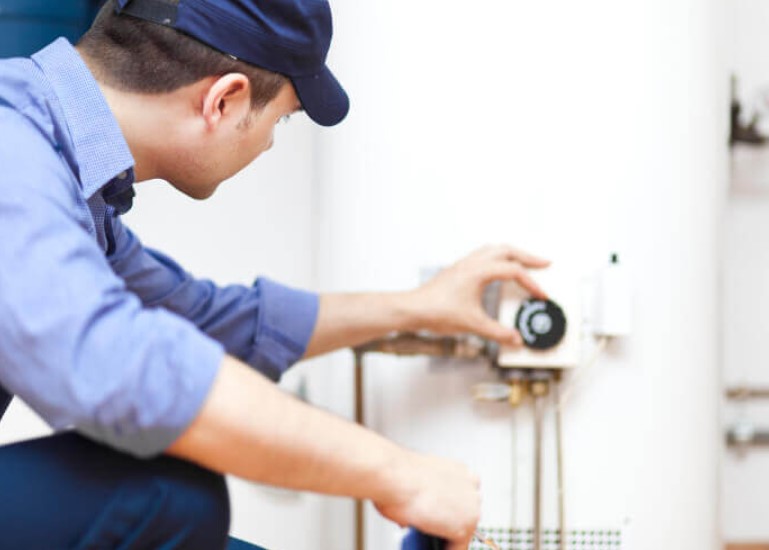A malfunctioning water heater can disrupt daily routines and cause inconvenience. Therefore, it’s crucial to enlist the services of a skilled and trustworthy technician to diagnose and repair the issue promptly. But with numerous options available, how do you determine which technician is the right fit for your needs?
Importance of Choosing the Right Water Heater Repair Technician
Selecting the right water heater repair technician can significantly impact the outcome of the repair process. A qualified technician can efficiently diagnose problems, offer effective solutions, and ensure the longevity of your water heater. On the other hand, choosing an inexperienced or unprofessional technician may lead to subpar repairs, recurring issues, and even safety hazards.
Factors to Consider When Choosing a Water Heater Repair Technician
Experience and Expertise
One of the first factors to consider is the technician’s experience and expertise in repairing water heaters. Look for technicians who have a proven track record of successfully repairing similar issues and possess relevant certifications or training in water heater repair.
Customer Reviews and Testimonials
Customer reviews and testimonials provide valuable insights into the quality of service provided by a technician. While online reviews can offer a glimpse into the experiences of past customers, word of mouth recommendations from friends, family, or neighbors can also be invaluable.
Whose Reviews Matter Most?
Online Reviews
Online reviews from platforms such as Google, Yelp, or Angie’s List can provide a wealth of information about a technician’s reputation and service quality. Pay attention to both the quantity and quality of reviews, taking note of any recurring themes or patterns.
Word of Mouth Recommendations
Word of mouth recommendations from trusted sources can carry significant weight when choosing a water heater repair technician. Personal referrals from individuals who have had positive experiences with a particular technician can instill confidence and help you make an informed decision.
The Role of Professional Accreditation
Professional accreditation, such as certification from organizations like the National Association of Plumbing-Heating-Cooling Contractors (NAPHCC), can indicate a technician’s commitment to professionalism and industry standards. When researching potential technicians, inquire about any relevant certifications or affiliations they may have.
Case Studies: Success Stories and Cautionary Tales
Before making a decision, consider seeking out case studies or testimonials from past clients to gain a better understanding of a technician’s capabilities and approach to repair work. Success stories can provide reassurance, while cautionary tales can serve as red flags to steer clear of unreliable technicians.
How to Find Reliable Reviews
When researching water heater repair technicians, prioritize reviews from reputable sources and verify the authenticity of customer feedback. Look for detailed reviews that provide specific information about the technician’s professionalism, communication, and quality of work.
Making Your Decision: Trusting Your Gut
Ultimately, trust your instincts when choosing a water heater repair technician. Consider factors such as professionalism, communication, and overall demeanor during your interactions with potential technicians. If something feels off or if you’re not comfortable with a technician’s approach, don’t hesitate to seek out other options.
Interviewing Potential Technicians
Before committing to a repair service, take the time to interview potential technicians to assess their knowledge, experience, and approach to repair work. Ask questions about their diagnostic process, repair techniques, and pricing structure to ensure clarity and transparency.
Tips for Ensuring a Successful Repair Experience
To ensure a successful repair experience, communicate clearly with your chosen technician about the issues you’re experiencing with your water heater and any specific concerns you may have. Additionally, follow any maintenance recommendations provided by the technician to prolong the lifespan of your water heater and prevent future issues.
The Importance of Regular Maintenance
Regular maintenance is key to preserving the efficiency and longevity of your water heater. Schedule routine inspections and maintenance services with a qualified technician to identify and address potential issues before they escalate into costly repairs.
FAQs
Can I trust online reviews when choosing a water heater repair technician?
Online reviews can provide valuable insights into a technician’s reputation and service quality, but it’s essential to verify the authenticity of customer feedback and prioritize reviews from reputable sources.
Should I prioritize word of mouth recommendations over online reviews?
Word of mouth recommendations from trusted sources can carry significant weight, but it’s essential to consider a variety of factors, including online reviews and professional accreditation, when making your decision.
What should I do if I can’t find any reviews for a particular technician?
If you’re unable to find reviews for a particular technician, consider reaching out directly to inquire about past client experiences or ask for references.
Are cheaper repair technicians always the better option?
While cost is a factor to consider, it’s essential to prioritize quality and expertise when choosing a water heater repair technician. Cheaper technicians may offer lower prices but could compromise on service quality or use subpar materials.
How often should I schedule maintenance for my water heater?
It’s recommended to schedule maintenance for your water heater at least once a year to ensure optimal performance and identify any potential issues before they escalate.
Conclusion
Choosing the right water heater repair technician is essential for ensuring timely and effective repairs. By prioritizing reviews from reputable sources, conducting thorough research, and trusting your instincts, you can find a technician who meets your needs and exceeds your expectations.

